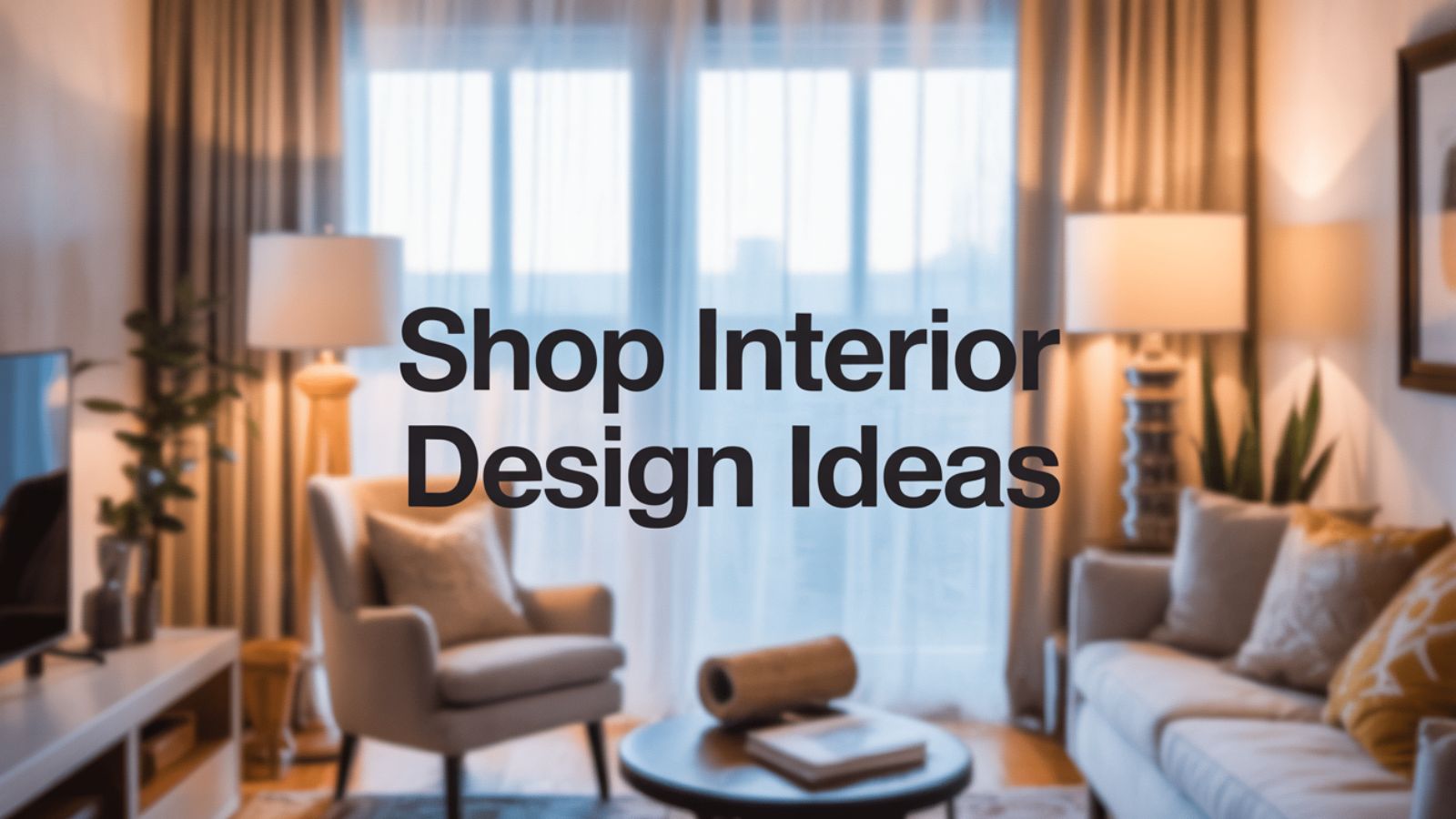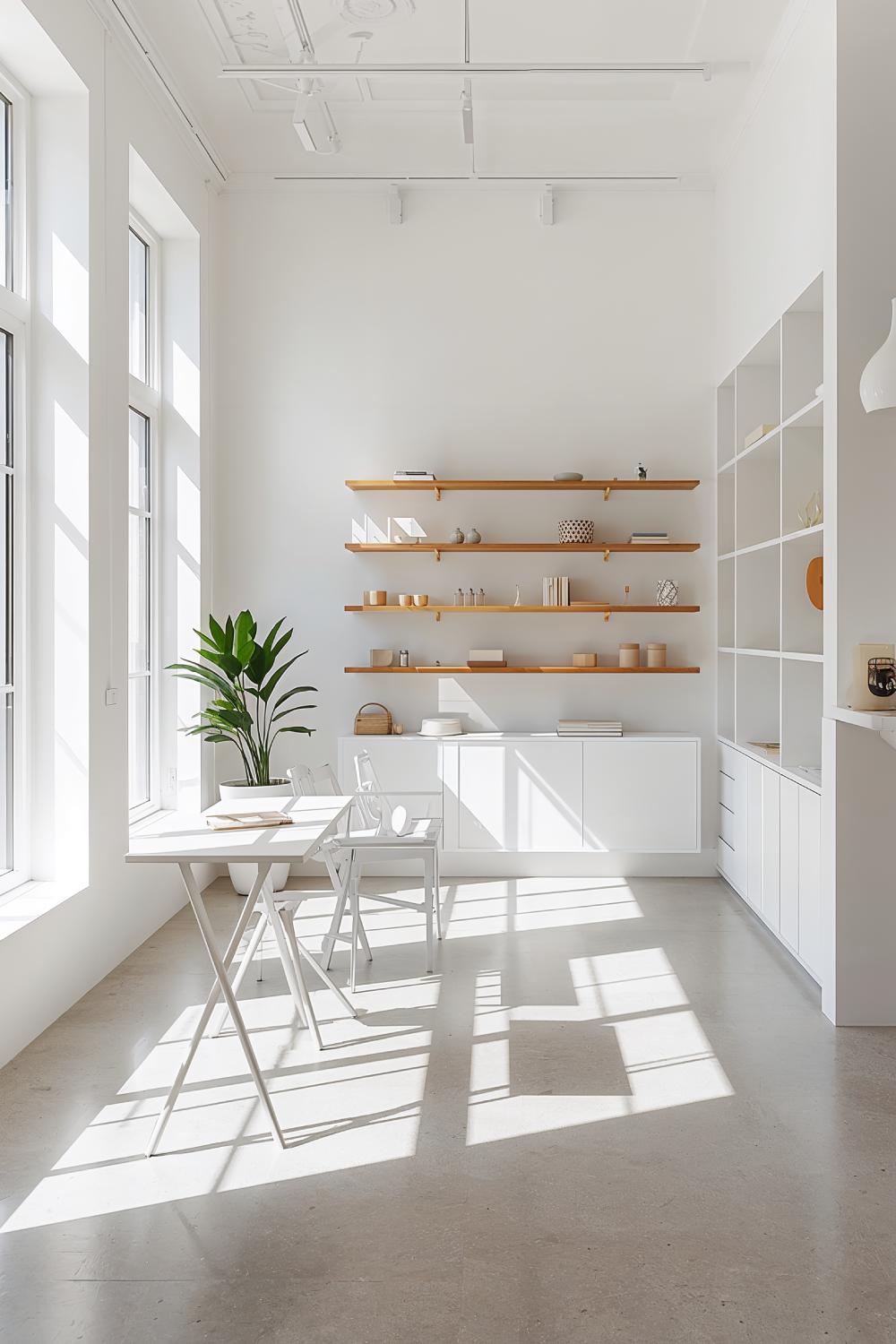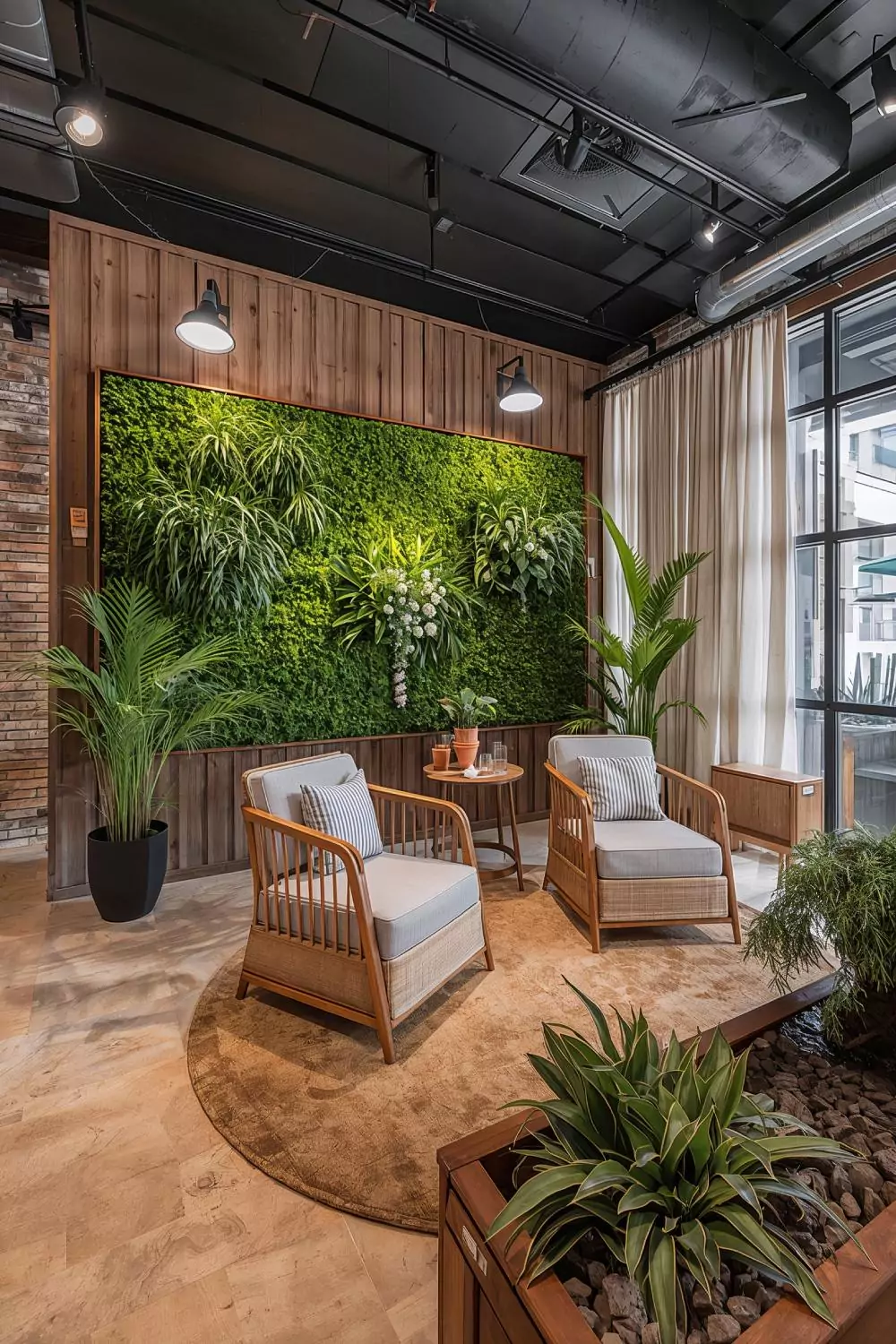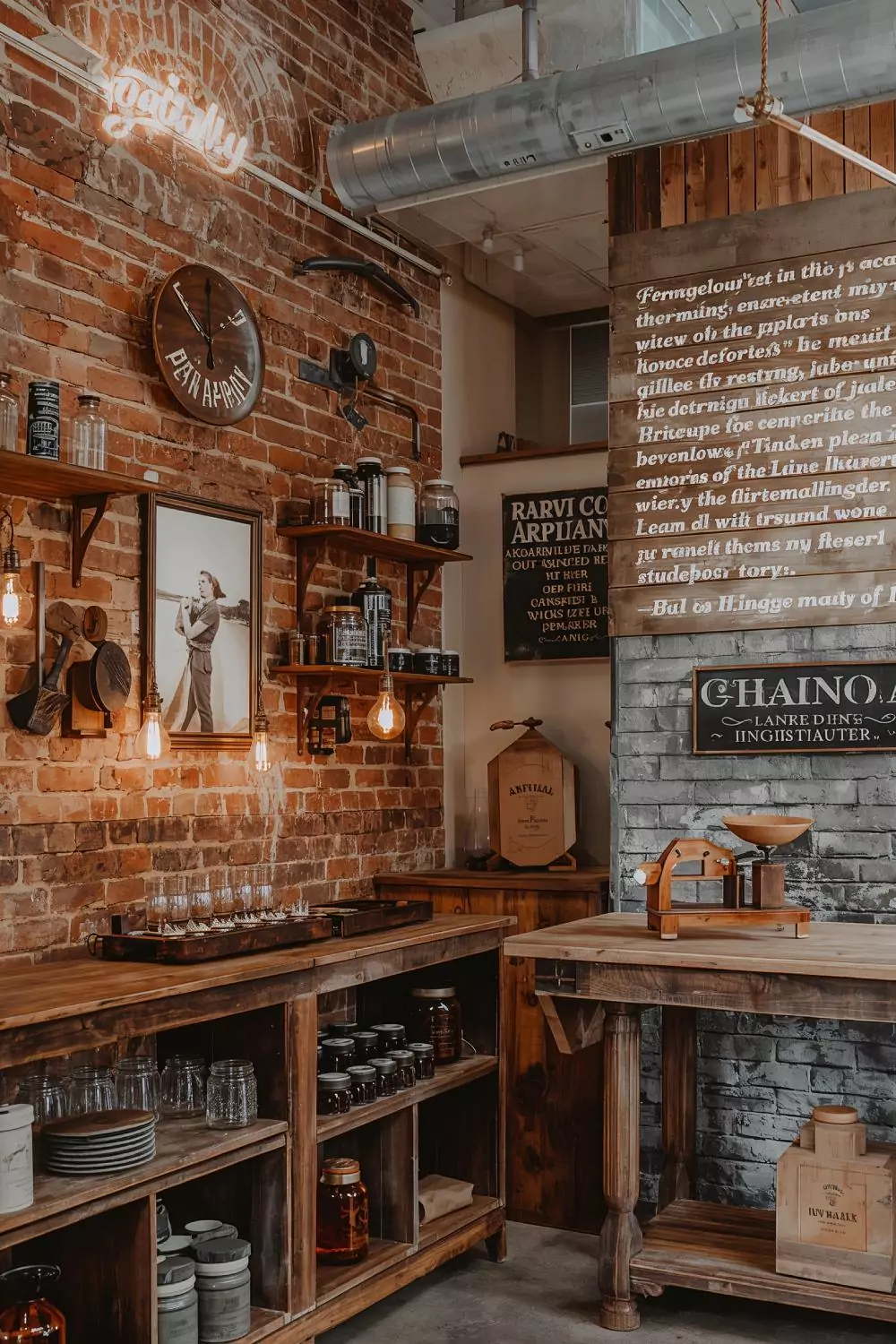Looking for expert shop interior design ideas to elevate your retail space and boost sales? Discover these honest, professional tips from Brad Smith, lead designer at Omni Home Ideas, that blend style, strategy, and practicality for modern retailers.

| Design Category | Best For Shop Type | Budget Range | Key Benefits | Implementation Time |
|---|---|---|---|---|
| Modern Minimalist Layouts | Small boutiques, tech stores | $2,000-$8,000 | Maximizes space, clean aesthetic | 1-2 weeks |
| Creative Display Ideas | Fashion, specialty stores | $1,500-$5,000 | Increases product visibility | 3-5 days |
| Budget-Friendly Solutions | Startups, small retailers | $500-$5,000 | Cost-effective transformation | 1-3 weeks |
| Sustainable Design | Eco-conscious brands | $3,000-$12,000 | Environmental appeal, durability | 2-4 weeks |
| Technology Integration | Modern retail, electronics | $5,000-$20,000 | Enhanced customer experience | 2-3 weeks |
| Color Psychology & Lighting | Beauty, fashion, wellness | $1,000-$7,000 | Influences buying behavior | 1 week |
| Flexible Store Layouts | Seasonal retailers | $3,500-$15,000 | Adaptable to changing needs | 2-3 weeks |
| Brand Storytelling Design | Artisan, heritage brands | $2,500-$10,000 | Builds emotional connection | 1-2 weeks |
| Traffic Flow Optimization | High-volume retail stores | $1,500-$8,000 | Increases sales conversion | 1-2 weeks |
| Storage Organization Hacks | Small spaces, inventory-heavy | $800-$4,000 | Maximizes functionality | 3-7 days |
1. Modern Minimalist Shop Layouts That Maximize Small Spaces
A streamlined minimalist retail store interior design can make even the tiniest shop feel open, organized, and high-end. This approach focuses on simplicity—think uncluttered pathways, neutral color palettes, and multifunctional furniture.

Why it works: ✨ Modern minimalist shop layouts prevent visual overload, making products the stars of the show and encouraging leisurely browsing. They’re especially effective for small boutiques or urban retailers dealing with limited square footage.
How to implement:
- Stick to a single focal display per wall
- Use portable shelving and modular tables
- Opt for wall-mounted racks to free up floor space
“Research shows that clear, less crowded spaces can increase dwell time by up to 50% in small stores.”
Pro tip: Try installing mirrors across from key displays to visually double the sense of space and bounce light.
Drawback: Minimalism requires discipline—overcrowding even one shelf can spoil the effect.
2. Creative Display Ideas for Boutique and Specialty Stores
Unique, visually captivating displays are the secret sauce for boutique interior design. They do more than organize products—they tell your story, spark curiosity, and encourage shoppers to engage.

How to get creative: 🖼️
- Employ unexpected materials—think reclaimed wood crates, vintage suitcases, or ladders as shelving
- Group products by color, theme, or trend
- Use lighting and backdrop changes to refresh displays frequently
Who benefits: Ideal for specialty shops and boutiques that want to highlight curated or artisanal selections.
“Boutiques that regularly change up displays see up to 30% more repeat visitors.”
Drawback: Creative displays can take more time to plan and may need more frequent updates to stay fresh.
3. Budget-Friendly Shop Design Solutions Under $5,000
Launching a store or working with tight capital? These commercial interior design solutions prove you don’t need deep pockets!

How to save big:
- Upcycle thrifted furniture for fixtures
- Incorporate DIY paint treatments
- Deploy peel-and-stick wallcoverings for instant texture
🪙 Utilize open shelving and minimal décor to keep costs low and flexibility high.
Pro tip: Focus your splurge on statement lighting—shoppers remember great atmosphere over expensive cabinetry!
Drawback: Some budget solutions may require more maintenance or updates down the road.
4. Sustainable and Eco-Friendly Retail Interior Concepts
Today’s customers notice when you make the effort with sustainable retail design. Green concepts highlight your values and appeal to the growing eco-conscious market.

Implementation: 🌱
- Use reclaimed wood or bamboo for shelving and flooring
- Integrate LED lighting and low-VOC paints
- Decorate with live plants (improves air and ambiance!)
Quote:
“67% of consumers consider sustainability when making a purchase—let your interior design tell that story.”
Who is this for? Brands targeting millennials, Gen Z, or local, artisanal shoppers.
Drawback: Upfront costs may be slightly higher, but the goodwill and utility savings pay off.
5. Technology Integration Ideas for Modern Shop Interiors
Tech isn’t just for online stores—modern shop interiors rely on intelligent integration to boost engagement and comfort.

Top integration ideas:
- Touchscreen kiosks for product lookup
- Digital signage for dynamic promotions
- Mobile POS for seamless checkout anywhere in the store
Example: 📱 An art supply store uses tablets at DIY demo stations, letting customers explore product tutorials while shopping.
Pro tip: Use wi-fi-enabled queue management to reduce perceived wait times during rush hours!
Drawback: Technology can require upfront investment and ongoing troubleshooting.
6. Color Psychology and Lighting Strategies for Retail Success
The right palette and lighting can make or break your shop’s atmosphere and sales. Color psychology in retail is proven to drive certain behaviors.

Essentials:
- Warm hues (reds, oranges) spark energy and impulse buys
- Blues and greens promote calm and trust—perfect for wellness shops
- Layered lighting (ambient, accent, and task) sets the mood for both browsing and buying
Quote:
“Shoppers in well-lit stores are 12% more likely to make a purchase than those in poorly lit ones.”
Pro tip: Adjust lighting seasonally to match product themes and window displays.
Drawback: Poor lighting or overly bold colors can fatigue or repel customers—test before committing.
7. Flexible Store Layouts for Seasonal Product Changes
Retail thrives on change—especially during holidays or sales events. Flexible store layout ideas let you pivot displays quickly without major overhauls.

How to do it: 🔄
- Invest in rolling racks and nesting tables
- Use lightweight, movable display fixtures
- Design with modular shelving units that reconfigure in minutes
This is vital for apparel, gift, and pop-up shops. But, moving pieces too often can confuse your regulars—strike a good balance!
8. Brand Storytelling Through Interior Design Elements
Your shop isn’t just a place to buy things—it’s an extension of your brand. Your narrative can come alive through interior elements from the window to the sales counter.

How to weave storytelling:
- Use wall murals or photo collages to show product origins
- Display artifacts or vintage items that align with your brand values
- Incorporate signature colors, shapes, or motifs throughout
Who it’s best for: Clothing boutiques, artisan makers, and stores with a strong local story.
Drawback: Overly thematic décor can alienate more general customers, so keep balance in mind.
9. Customer Flow and Traffic Pattern Optimization
A smart store layout gently guides shoppers past your best sellers and maximizes dwell time (and purchases!). Understanding and directing customer flow is a critical part of retail store interior design.

How to optimize: 🔀
- Place high-demand products at the store’s far end
- Ensure main aisles are at least 4 feet wide to reduce bottlenecks
- Zone the shop: entrance, browsing, impulse, and checkout areas
Statistic:
“Effective traffic pattern optimization can increase sales per square foot by up to 40%.”
Drawback: Over-engineering can make stores feel forced—observe customer behavior and iterate.
10. Small Shop Storage and Organization Design Hacks
Clever storage is a small shop design idea that keeps clutter off the sales floor and product within easy reach. 🧩

Tricks to try:
- Under-counter drawers at checkout for quick bag and receipt access
- Hidden shelving behind mirrors or wall art
- Vertical storage and hanging displays
Pro tip: Rotate back-stock seasonally and label everything clearly to avoid product loss or over-ordering.
Drawback: Sometimes hidden storage can be hard for new staff to learn—keep systems simple.
Smart, stylish shop interior design ideas don’t just elevate your retail space—they shape customer experience, influence buying habits, and build brand loyalty. Whether you’re going minimalist, integrating tech, or weaving in sustainable materials, there’s a solution for every shop size and budget.
- Want a tip that ties it all together? Use scent as a subtle design element—research shows fragrance can increase retail sales by as much as 11%! Another: Don’t forget external curb appeal—inviting signage and window displays are your open invitation.
Looking for more expert insights or ready to transform your shop? Get in touch with me at Omni Home Ideas for a free consultation or more honest advice tailored to your concept. Your store’s evolution starts today!

